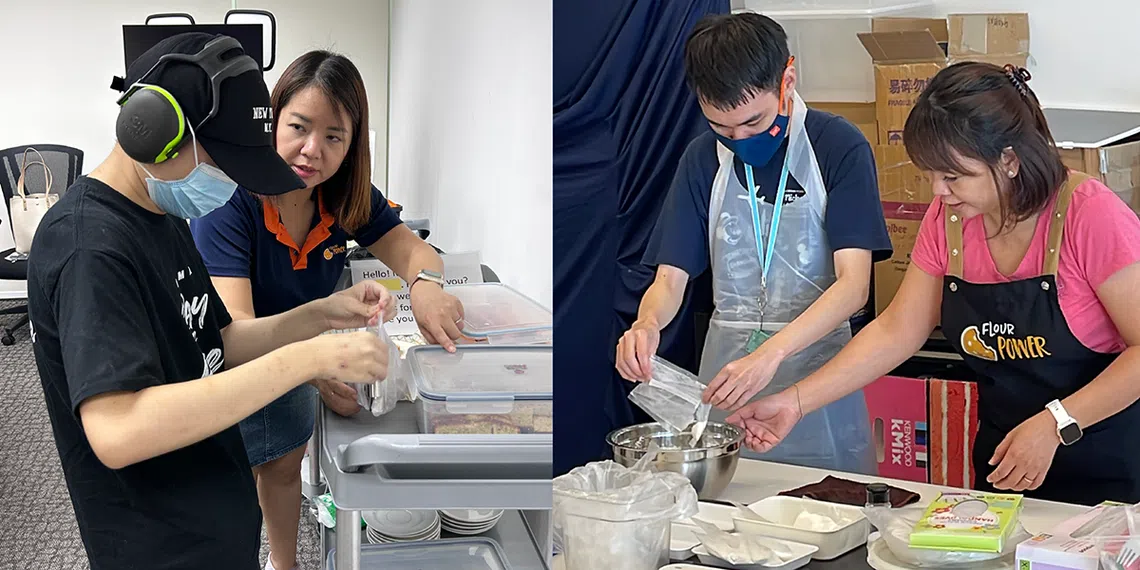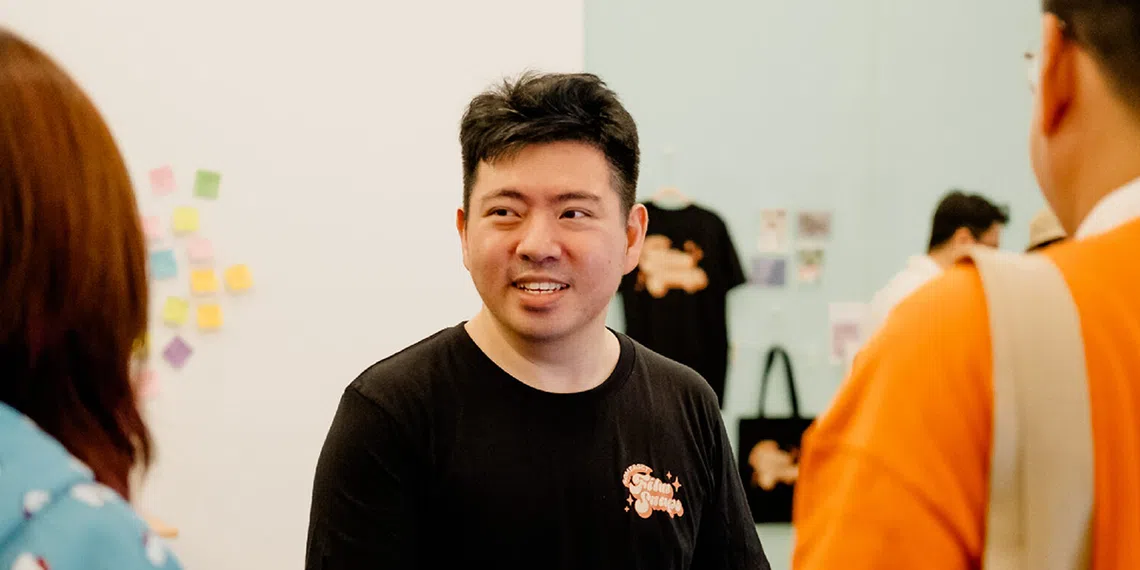SIM-Ressec diploma helps social enterprise founders create lasting impact
The specialist programme equips changemakers with the skills to design sustainable solutions
[SINGAPORE] When Yeo Hiok Keat first founded his social enterprise, Flour Power, in 2020, the process was not as smooth as he had envisioned.
“We not only faced low brand awareness but also struggled with how to create meaningful daily engagement for persons with disabilities (PWDs) who remain outside traditional employment,” the co-founder and chief executive recalled.
Flour Power equips PWDs with culinary skills and helps them access employment opportunities. But the “initial lack of brand awareness meant many caregivers and corporates were unsure about our capacity to deliver high-quality bakes and meaningful training”, Yeo said.
“Balancing operational costs with our commitment to adaptive processes for PWDs required continuous learning and resourcefulness,” he added.
He also observed a “significant engagement gap” among the PWDs during those early days – many of them lacked a routine or sense of purpose.
He decided to take up a specialist diploma in social entrepreneurship at the Singapore Institute of Management (SIM), under the Dr Richard K M Eu-SIM Social Entrepreneurship Centre, or Ressec. The six-month part-time programme concluded in December 2024.
Navigate Asia in
a new global order
Get the insights delivered to your inbox.
“The specialist diploma equipped me with essential strategic planning, financial management, design-thinking and marketing skills, which enabled me to formalise Flour Power’s revenue streams – such as our customised corporate cookie orders – into sustainable models,” Yeo said.
Flour Power runs several programmes. Through Bake@FP, PWDs and able-bodied individuals work together to create baked goods. Learn@FP offers culinary and non-culinary workshops that accommodate varied learning styles and abilities, while Event@FP hosts workshops for corporates and mental wellness sessions.

“By integrating ableism awareness and adaptive practices into every programme, Flour Power not only cultivates technical competencies but also nurtures empathy, respect and true inclusion across ability lines,” Yeo said.
He added that the SIM-Ressec programme helped him apply design-thinking methodologies to refine workshop experiences. The social enterprise is currently developing a social franchising programme which will allow beneficiaries to run their own bakery outlet.
Refining strategies and business models
Another entrepreneur that tapped the diploma is Brandon Ong, the co-founder of HeartBid, a digital fundraising platform that also conducts auctions.

After launching in 2021 during the pandemic, the platform began facing challenges as many organisations returned to in-person fundraising, said Ong. He wondered if HeartBid would remain relevant, but the social entrepreneurship programme helped him reframe the business model.
This is because it helped him adopt a design-thinking approach to better understand charities. “We mapped out our value proposition and clarified our impact pathways. One insight was the potential to work more closely with social enterprises and corporate sponsors – connecting them with charities to contribute auction items or experience.”
Ong credits the diploma with helping him strengthen his proposal to receive a S$50,000 grant from the Singapore Centre for Social Enterprise, which HeartBid will use to scale its efforts.
Liu Xin, a counsellor and senior manager at Jolly Companion, also completed the SIM-Ressec diploma. The social enterprise enhances the well-being of seniors through companionship and active ageing initiatives, such as mental health talks, cognitively stimulating games, and home-based holistic assessments.
She said: “Ressec provided Jolly Companion with the analytical tools, brand discipline and collaborative network we needed to move from a neighbourhood initiative towards a scalable, citywide platform.”
The social enterprise will soon launch Reprints, an intergenerational reading programme to improve older adults’ cognitive function through storytelling with children. It is also working with deep-tech startups to tailor products for seniors.
Dr Maylyn Tan, Ressec programme leader and SIM Global Education assistant dean and head of faculty talent, said the diploma aims to help entrepreneurs create lasting social impact.
“By equipping them with critical skills – from opportunity identification to problem-solving, business modelling and stakeholder management – our goal is to nurture changemakers who consider the root causes of social issues and address them by designing solutions that are impactful, scalable and sustainable,” she said.
Beyond the diploma, SIM also helps connect the entrepreneurs to its broader network of alumni and corporate partners, and funds internships for students to join these social enterprises.
Applications for the next intake of the SIM-Ressec diploma are open until Jun 15.
Likewise, some Singapore Polytechnic students have also utilised diploma programmes to enhance their skills for their own startups.
For example, Alicia Hong created Digi-Up, an initiative that teaches digital literacy to seniors through gamification. She completed a diploma in media, arts and design, and the design-thinking skills she learnt helped her craft senior-centric solutions.
Similarly, Mohamed Ilzymanshah Kamarudin founded an app called @Messenger to enable non-verbal individuals to communicate through means such as text messaging.
“My diploma in media, arts and design (experience and product design) helped me study existing solutions to alternative communication methods for non-verbal individuals. It also helped me structure my research to derive relevant user feedback that my team and I innovated upon to create @Messenger,” he said.
Decoding Asia newsletter: your guide to navigating Asia in a new global order. Sign up here to get Decoding Asia newsletter. Delivered to your inbox. Free.
Copyright SPH Media. All rights reserved.

